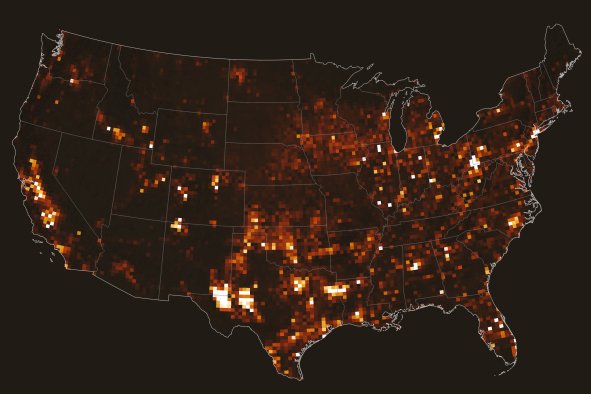Consuming energy drinks may be linked to sudden cardiac arrest, a new study suggests.
Researchers at the Mayo Clinic have warned that drinking these beverages, which often contain high amounts of caffeine and other stimulating ingredients, can be dangerous for people with genetic heart diseases.
For the study, the team examined 144 sudden cardiac arrest survivors. Seven patients within this group had consumed one or more energy drinks near to the time that the cardiac event occurred.
The researchers also looked at the type of cardiac problem experienced by the patients, as well as the conditions in which the event took place.
Although the study did not prove that drinking energy drinks directly causes cardiac arrest, the scientists warn people—especially those who may be genetically at risk of heart problems—should consume them in moderation.
Lead investigator of the study Michael J. Ackerman, a genetic cardiologist at Mayo Clinic, said in a statement: "Although the relative risk is small and the absolute risk of sudden death after consuming an energy drink is even smaller, patients with a known sudden death predisposing genetic heart disease should weigh the risks and benefits of consuming such drinks in the balance."
However, Ackerman added that a number of potential factors could have contributed to the sudden cardiac arrests, as well as the energy drinks.
"While there seemed to be a temporal relationship between energy drink consumption and the seven patients' sudden cardiac arrest event, a myriad of potential 'agitators' that could have also contributed to a genetic heart disease-associated arrhythmia occurred, like sleep deprivation, dehydration, dieting or extreme fasting, concomitant use of QT-prolonging drugs, or the postpartum period," he said.
"As such, unusual consumption of energy drinks most likely combined with other variables to create a 'perfect storm' of risk factors, leading to sudden cardiac arrest in these patients."
The energy drink market has grown rapidly in the U.S., with sales increasing 73 percent between 2018 and 2023, according to Mintel. However, health experts have raised concerns over the risks of consuming beverages that contain large amounts of caffeine and other stimulating ingredients, like taurine and guarana.
A normal, 8-ounce cup of coffee contains around 100mg of caffeine. Meanwhile, caffeine levels in a single serving of energy drink can be as high as 300mg.
Energy drinks are popular among children and young people, who consequently may be at higher risk of health problems because of their smaller body sizes and lower tolerance to stimulant drugs.
"Energy drinks are not regulated by the US Food and Drug Administration (FDA), so researching the effects that these drinks have on our patients is of utmost importance," Ackerman said.
"It has been postulated that the highly stimulating and unregulated ingredients alter heart rate, blood pressure, cardiac contractility, and cardiac repolarization in a potentially pro-arrhythmic manner."
The full findings of the study were published in the journal Heart Rhythm.
Do you have a tip on a science story that Newsweek should be covering? Do you have a question about nutrition? Let us know via science@newsweek.com.
Disclaimer: The copyright of this article belongs to the original author. Reposting this article is solely for the purpose of information dissemination and does not constitute any investment advice. If there is any infringement, please contact us immediately. We will make corrections or deletions as necessary. Thank you.



